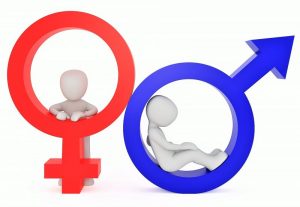Social inequality
In most democratic countries of the world, people are said to be equal before the law. Justice, freedom, fraternity, respect are universal values that sustain a democracy. However, differences related to various factors such as social class, education level, age, gender, ethnic origin, religion, among others, are determinants in the emergence of social inequality. For some, social inequalities are acceptable and there is no need to correct them since far from contributing to the quality of life of the individual, it would imply a downward levelling. For others, social inequality is the consequence of economic, political or social domination and must therefore be corrected or at least reduced.
What is social inequality?
Social inequality refers to the difference in treatment that can benefit a social class, a group or an individual with respect to others and that establishes social hierarchies.
Social inequality refers to the different or discriminatory treatment that one person has towards another, because of their social class, religion, gender, race, nationality, among other things.
In general, it is the social minorities who are most often discriminated against. Dominant groups use discrimination to exercise control over minority groups.
According to archaeological studies, already in the Neolithic period, there was inequality between different individuals in society in the way they worked the land.
For the French philosopher Jean Jacques Rousseau, in his work “Discourse on the Origin and Fundamentals of Inequality among Men”, social and political inequality does not stem from divine will nor is it a natural characteristic among individuals.
For Rousseau, inequality arises as a consequence of private property and of those who seize the wealth of the world.
Although in the days of the enlightened like Rousseau, the ideas of freedom, equality and fraternity were defended and the importance of human rights was promoted, the era of the industrial revolution later marked a considerable difference in income levels.
Types
- Cultural inequality: the form of inequality that originates from differences in access to knowledge. This determines that there are different cultural levels in a society.
- Economic inequality: is the disparity that results from different sources of income, heritage or work activity.
- Social inequality: this form of inequality results from different living conditions among individuals, depending on sex, work, health, housing, education, family situation.
Causes
- Economic causes: The low economic remuneration received for certain work activities may be a factor leading to economic inequality.
- Ethnic causes: The ethnic population to which the individual belongs may determine how he or she is treated. Xenophobia and racial discrimination are often associated with this type of social inequality.
- Cultural causes: Differences in education and access to information can also be determinant in the origin of social inequality.
- Gender causes: Inequality between men and women is a reality that has existed throughout the history of humanity and that despite the fact that in the present era, many achievements have been made in favor of women, there are still societies in the world where women have an unfavorable status with respect to men.
- Political causes: A system of government that does not represent all sectors of society can result in unequal treatment of its citizens.
The countries in which there is greater social inequality may have consequences, such as those listed below:
- Decrease in life expectancy and higher incidence of disease. This consequence is linked to access to health services and medicines.
- Increased susceptibility to mental health problems and drugs.
- Higher rate of early pregnancies. This phenomenon is associated with less access to education.
- Lack of access to education. It should be noted that in some countries, such as Niger or Pakistan, this consequence particularly affects women, who have limited access to education.
- Growing poverty. Indeed, in developing countries, it is people belonging to the most disadvantaged classes who have to pay the highest taxes.
- Malnutrition. Unfavorable economic conditions have a direct impact on access to a healthy and balanced diet.
- Immigration. In countries with high social inequality, many of their inhabitants decide to emigrate for economic reasons, seeking to improve their quality of life.
Solutions
- To adopt permanent policies, at global and local level, to study the processes of social exclusion in order to prevent them.
- Promote the training of professionals who specialize in social exclusion processes.
- Prioritize the dissemination and design of educational materials aimed at promoting good practices in dealing with others.
- Promote the appropriate use of the media, which is often a crucial factor in the formation of stereotypes.
- Encourage the growth of the labor market.
- Strengthen social protection and health systems.
- Propose and carry out social programs that allow all citizens to have decent housing.
- To design actions aimed at ensuring equal opportunities in terms of access to education for personal and social development.
Spain
In spite of being Spain, an economically developed country, according to some data, almost 30% of the Spanish population is at risk of poverty. In fact, apparently, there are no real policies in this country aimed at protecting the most vulnerable and redistributing wealth, or if they do exist, they are ineffective. Consequently, Spanish society is an unequal society.
Argentina
In Argentina, the problem of social inequality is increasingly evident. In this country, the rich become richer and richer while the poor become poorer and poorer. According to some sources, the rich earn about $2,173 per month while the poor receive $85 per month. It should be noted that the Argentine basic basket is estimated at $325 per month, while the total basic basket is at $745 per month. This is a situation that has been increasing in the last years of the Kichner government and that has increased during Macri’s current government.
Mexico
Because of its size, Mexico is considered the 14th largest economy in the world. However, the reality is that around 45 million Mexicans are victims of poverty, making Mexico one of the most unequal countries in Latin America.
In addition to the distribution of wealth, other factors that contribute to greater social inequality are gender and ethnic-racial differences. In the latter case, mention can be made of indigenous groups, which suffer great discrimination with respect to other social groups in the country. Almost 90 per cent of the country’s indigenous people do not have access to the education system, the health system or decent housing.
Chile
In Chile, the richest 1% of the population has a monthly income of $14,964,000 and even the richest 0.1% receive monthly incomes of around $83,000,000 while 0.01% receive $459,000,000 per month. In that sense, the highest economic inequality is at the top of the distribution.
How to cite this article?
Briceño V., Gabriela. (2019). Social inequality. Recovered on 3 May, 2025, de Euston96: https://www.euston96.com/en/social-inequality/










